Kitchen
The latest Kitchen breaking news, comment, reviews and features from the experts at T3
Explore Kitchen
-
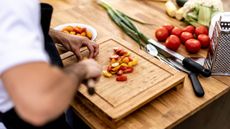
11 best Christmas gift ideas for budding chefs and home cooks
Upgrade your kitchen with these luxury Christmas gifts
By Bethan Morgan Published
-

15 best Christmas gift ideas for coffee lovers, baristas and latte art beginners
These are the best gifts to give someone who loves all things coffee
By Bethan Morgan Published
-
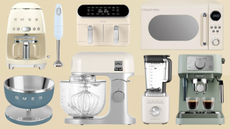
15 retro kitchen appliances that would make the perfect gift this Christmas
Some are even still discounted after Black Friday!
By Lizzie Wilmot Published
-
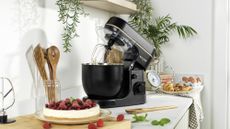
Salter just dropped a new kitchen appliance range – and it has every gadget you could possibly imagine
Introducing the Alchemy collection...
By Lizzie Wilmot Published
-

This Tower air fryer uses AI to calculate cooking temperature – and it’s super affordable
Tower’s new AIRX air fryer has built-in AI that’s genuinely useful
By Bethan Morgan Published
-
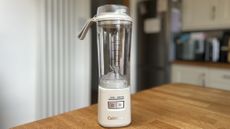
Cuisinart Blast & Go Portable Blender review: easy, convenient and surprisingly premium
Here's my take on Cuisinart's latest kitchen gadget
By Lizzie Wilmot Published
-
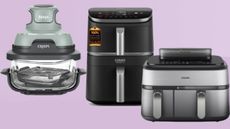
3 best air fryer launches from 2025 you should know about – if you don't already
My favourite air fryers from the year, and why they deserve a place in your kitchen
By Bethan Morgan Published
-
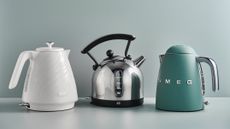
Best kettle 2025: the highest-ranking multi-temp and standard models
The ultimate vessel for a perfect cuppa
By Lizzie Wilmot Last updated
-
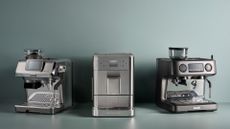
Best bean-to-cup coffee machine 2025: top picks for coffee lovers
Find the best bean-to-cup coffee machines that incorporate a grinder, espresso maker and milk frother in one handy box
By Bethan Morgan Last updated
-

Xiaomi’s new smart fridge has some brilliant features – and it could shape the future of kitchen appliances
It's also incredibly affordable
By Lizzie Wilmot Published
-

Best electric barbecue 2025: indoor and outdoor grills for all-year-round cooking
Find the best all-in-one electric barbecues and grills with plug-and-play convenience
By Bethan Morgan Last updated
-

Pantone’s 2026 Colour of the Year is underwhelming, but these appliances can incorporate it in your kitchen
Is anyone else deeply disappointed by the 2026 Pantone Colour of the Year?!
By Bethan Morgan Published
-

Cuisinart Grind, Tamp and Brew Espresso machine review: A premium experience for coffee buffs
Cuisinart’s high-end espresso model offers full control from bean to cup for hot or iced barista-style drinks
By Rob Clymo Published
-

I test air fryers for a living – here are 11 Cyber Monday dual air fryer deals you should buy
The best Cyber Monday savings on dual basket air fryers from Ninja, Tower, Philips and more
By Bethan Morgan Last updated
-

13 small air fryer Cyber Monday deals – perfect for tiny kitchens
Get up to 50% off single air fryers for smaller kitchens and spaces
By Bethan Morgan Last updated
-

I built my dream kitchen with these 7 appliances – and they’re all on sale for Cyber Monday
If I didn’t already have these kitchen gadgets, I’d be buying them in the Cyber Monday sales
By Bethan Morgan Last updated
-

3 kitchen appliances you shouldn't leave plugged in at night, according to an expert
A little caution now can save a big headache later
By Lizzie Wilmot Published
-

Best coffee pod Black Friday deals 2025: save big on your daily brew
Including discounted favourites from Nespresso, Lavazza, L'OR, Nescafé and Keurig
By Lizzie Wilmot Published
-

I test pod coffee machines for a job – these 9 Black Friday deals are insanely cheap right now
Get up to 59% off pod coffee machines from Nespresso, Lavazza, Dolce Gusto and more!
By Bethan Morgan Published
-

Forget Ninja – this Tower air fryer is now just £29 in cheap Black Friday deal
This is the only Black Friday air fryer deal you should buy
By Bethan Morgan Published
-

T3’s top 3 bean-to-cup coffee machines are all discounted on Amazon right now – do you know how rare that is?
Each machine has received five stars in our full reviews
By Lizzie Wilmot Published
-
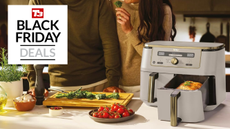
Ninja's best-looking air fryer has just been reduced in Amazon's Black Friday sale
It's usually sold out everywhere!
By Lizzie Wilmot Published
-
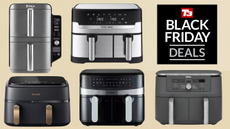
10 XL air fryers with big price drops this Black Friday
Whether you have a big family or enjoy batch cooking – there’s a large capacity air fryer here for you
By Lizzie Wilmot Last updated
-
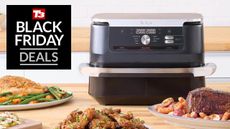
5 best Black Friday air fryer deals LIVE – huge savings from Ninja, Tefal, Tower and more
T3 rounds up the best air fryer deals this Black Friday
By Bethan Morgan Last updated
-

Calling all baristas! Victorinox just made a Swiss Army Knife for your coffee machine
I’ve just found my new favourite coffee machine accessory
By Bethan Morgan Published
-
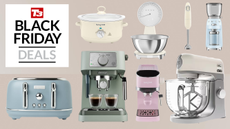
10 retro kitchen appliances that are heavily reduced in the Black Friday sales
Whether it’s Smeg or Salter, there’s a vintage favourite here for you
By Lizzie Wilmot Published
-

Smeg's trendiest coffee machine is incredibly cheap in this early Black Friday deal
You can currently get up to £320 off!
By Lizzie Wilmot Published
-

Want a Ninja coffee machine this Black Friday? This is the best bundle deal I've found
The Ninja Luxe Café and two accessories for £30 cheaper than the machine alone? Surely not…
By Lizzie Wilmot Last updated
-
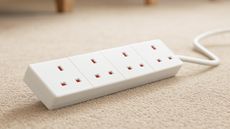
3 kitchen appliances you should never plug into an extension lead, according to an expert
It's best to be safe than sorry
By Lizzie Wilmot Published
